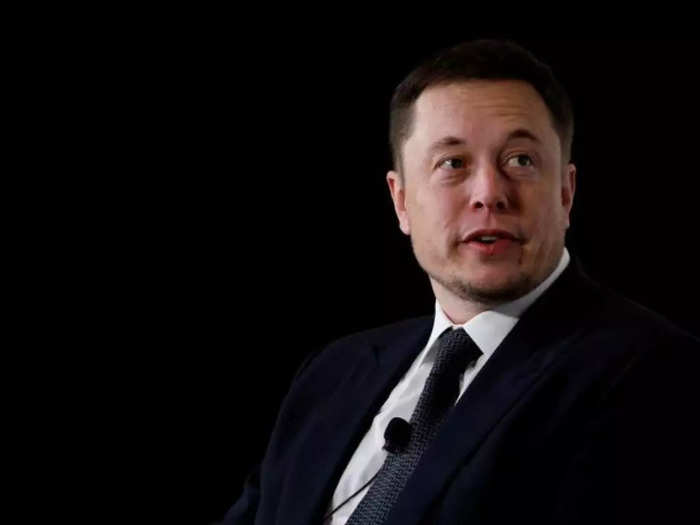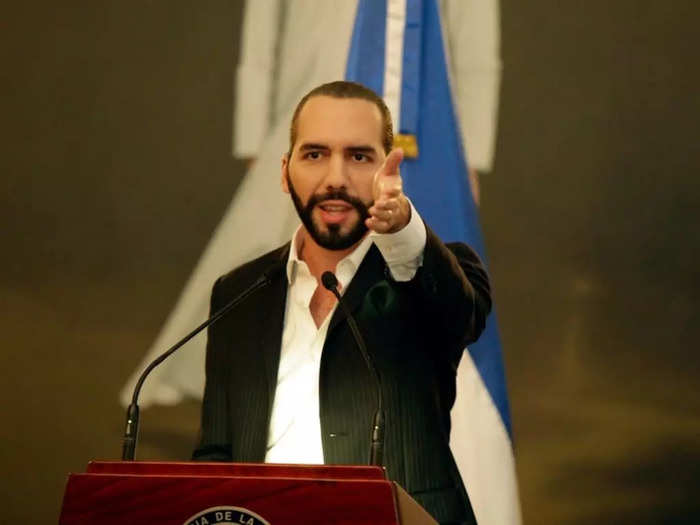(Left to right) El Salvador's President Nayib Bukele, Ethereum co-founder Vitalik Buteren, and Tesla CEO Elon Musk Twitter/Wikimedia Commons/IANS
- TIME Magazine released its list of the 100 most influential people, including those with pull in the crypto world.
- The list features Tesla and SpaceX CEO Elon Musk, El Salvador’s President Nayib Bukele and Ethereum co-founder Vitalik Buterin.
- These three have been included for being able to influence cryptocurrencies with their actions, like being at the helm of the first country in the world to accept Bitcoin as legal tender.
Over the past few years, cryptocurrencies have been on an upsurge thanks to the influencers who endorse it. As seen time and again, a few tweets about
Dogecoin by Tesla and SpaceX CEO Elon Musk caused its value to increase manifold. And, when he
backtracked on Tesla accepting
Bitcoin as payment, its price plummeted.
TIME’s annual top
100 most influential people in the world includes him, as well as El Salvador’s President Nayid Bukele and Ethereum co-founder Vitalik Buterin in its list.
Love them or hate them — Here’s why they have been chosen as the most influential people in crypto industry:
Elon Musk and Bitcoin
IANS
The CEO of Tesla and SpaceX has been a vocal advocate for cryptocurrencies, whose opinions are known to swing investor reactions in the digital currency sphere. He has shown his support for Bitcoin on many occasions. His firm Tesla had accepted Bitcoin as a means of payment for selling its vehicles, and earlier this year, it invested $1.5 billion into the famous digital coin.
And, when he withdrew his promise, the cryptocurrency went for a nose dive.
Elon Musk and Dogecoin
ElonMusk/Twitter
When Musk was asked about why he loves Dogecoin, he responded that it was because of his love for dogs and memes. Earlier this week, he posted a picture of his new dog — a Shiba Inu — which led to a sharp rally in the values of Shiba Inu and Shiba Floki cryptocurrencies.
Vitalik Buterin — the guy who wrote the original Ethereum code
Wikimedia Commons
The co-founder of the blockchain technology, Ethereum, also made it onto the list of most influential people. While there are eight Ethereum co-founders overall, Buterin is the one who wrote the original whitepaper.
The Russian Canadian programmer’s work has helped the emergence of decentralized finance (DeFi) applications and fueled hype behind non-fungible tokens (NFTs).
Ether, the cryptocurrency which fuels the Ethereum blockchain, is currently worth $415.1 billion, according to CoinMarketCap.
Vitalik Buterin — Leading Ethereum 2.0’s revolution
Wikimedia Commons
Vitalik is also leading the blockchain firm to switch to an energy-efficient Proof-of-Stake (PoS) model, which is dubbed Ethereum 2.0, from its current Proof-of-Work (PoW) model.
Currently, the PoW consumes 62.56 KWh of electricity, while the Ethereum 2.0 is expected to be highly efficient with the usage falling to 1/10,000th of the current requirement. In the PoS model, validators — or miners — don't need to use their computational energy unless they are selected as the winners of the auction.
Nayib Bukele — The man who declared Bitcoin as legal tender
NayibBukele/Twitter
Nayib Bukele, the President of El Savador, became the first head of state to adopt Bitcoins as a mode of payment. His support for Bitcoin also helped the digital currency re-establish its position as a leader in the digital sphere. Thanks to his push, El Salvador became the first nation to use Bitcoins as a legal tender.
His contribution to the digital currencies made him a popular figure and also pushed countries like Ukraine and Paraguay to explore ways of accepting digital currencies as a legal tender.
Nayib Bukele — The man who also snubbed the IMF and World Bank
NayibBukele/Twitter
Bukele recently blamed the plummet in crypto currencies on the International Monetary Fund (IMF). In the tweet sharing his purchase of 150 Bitcoin — bringing El Salvador’s grand total upto 550 Bitcoin — he thanked the IMF for causing the dip in cryptocurrency values, so that he could pick up more of the cryptocurrency for the country’s coffers.
Earlier, Bukele had reached out to the World Bank and IMF to help El Salvador with the technical implementation of accepting Bitcoin as a legal tender but the international organisations snubbed him claiming that the cryptocurrency is too volatile to be a national currency.






